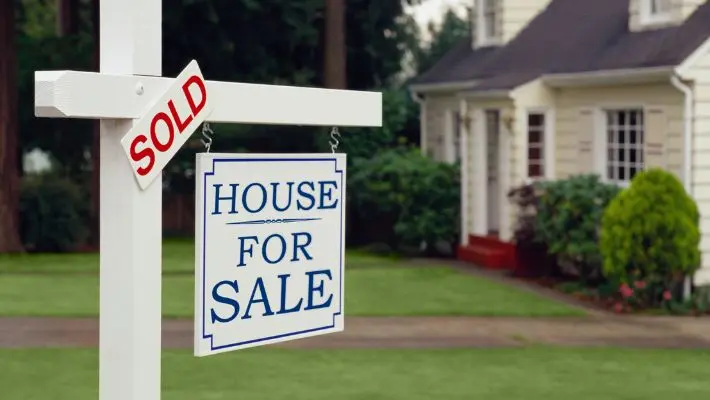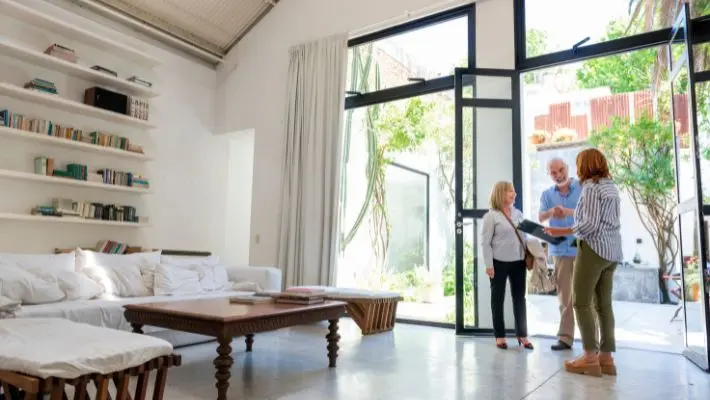
How to Get a Mortgage Pre-Approval
What is a mortgage pre-approval, and how do you get one? Learn how to prove your strength as a buyer with a mortgage pre-approval.
After time well spent searching, planning, and identifying your non-negotiables, you’re ready to find your dream home.
Your savings account is full, your credit score is up to snuff, and you have a grasp on the state of your local market. You’re ready to work with a professional real estate agent. And on top of it all, you’re ready to find a lender and get a mortgage.
But first, as a prospective homebuyer, you must consider your need for a mortgage pre-approval.
What is a Mortgage Pre-Approval?
The mortgage process can seem daunting, yet familiarizing yourself with it before you start the home shopping process is a key way to build your strength as a prospective buyer.
A mortgage pre-approval is confirmed, documented proof from a lender that you have strong credit and good financial standing, without having any contractual obligation in place.
By having a mortgage pre-approval in hand, you can adequately plan your budget for home buying because you now know how much your lender is willing to allow you to borrow, based on your financial standing and credit. This opens up countless doors in the home search process, allowing you to potentially explore and expand where, how, and what you will buy.

Having your mortgage pre-approval is also key when you’re ready to make an offer on a home. By having solid verification of your financial status and your credit by a lender that is willing to loan to you, you can set yourself apart as a serious, ready buyer. This is especially critical when up against other buyers in a competitive market: having your pre-approval at the ready demonstrates your willingness and seriousness as a prospective buyer.
How Do You Get a Mortgage Pre-Approval?
Now that you’ve identified your need for a mortgage pre-approval, how do you get one?
To get a mortgage pre-approval, you first must find and select your preferred lender. Once you’ve identified your preferred lender, you then fill out a mortgage application. The lender will review and verify the information provided on your application, including conducting a credit check.

Once the review of your application has been completed, you will learn if you are pre-approved for a mortgage from your lender of choice. If you are pre-approved successfully, you will receive a pre-approval letter from your lender, demonstrating an offer of the specific amount they are willing to loan you.
Keep in mind, this letter is only good for 90 days. Consider this time frame as you prepare for your home searching and buying journey.
How is Mortgage Pre-Approval Different Than a Mortgage Pre-Qualification?
While they may sound incredibly similar, there is a huge difference between getting a mortgage pre-approval and getting a mortgage pre-qualification. As a homebuyer, it’s critical that you equip yourself with knowing the difference between the two.
A mortgage pre-qualification happens even earlier in the prospective buying process. A mortgage pre-qualification is an estimated amount of what you could potentially borrow from your lender. Like a mortgage pre-approval, you’ll also fill out an application, provide key information about your finances, and undergo a credit check for a mortgage pre-qualification.
The result of a mortgage pre-qualification will give you a good idea of your home buying budget. A mortgage pre-approval can also provide you with an opportunity to review other potential mortgage options, allowing you to work closely with your lender to find the best fit for your home buying needs.
But if you’re ready to buy sooner rather than later, you’ll likely want to apply for a mortgage pre-approval.
Which One is Best for Me?
If you’re weighing whether or not to get a mortgage pre-qualification or a pre-approval, start with considering your timeframe to purchase a home.
If you’re just starting the process of searching for homes, or if you have identified your top areas you want to live in, you may consider a mortgage pre-qualification first to shape your budget and give you an idea of what you can borrow. This can set you up for success in the long run by allowing you to drill down your choice in homes by affordability, or take more time to save and improve your financial standing.

If you’re further along in the home shopping journey, including being ready to make offers on homes in the next 90 days, you may consider a mortgage pre-approval to give you a stronger guide to your budget, as well as set you apart with documentation that shows home sellers you are a serious, ready buyer.
Are you ready to streamline your home buying journey? Connect with top agents in your area on RealEstateAgents.com today.






